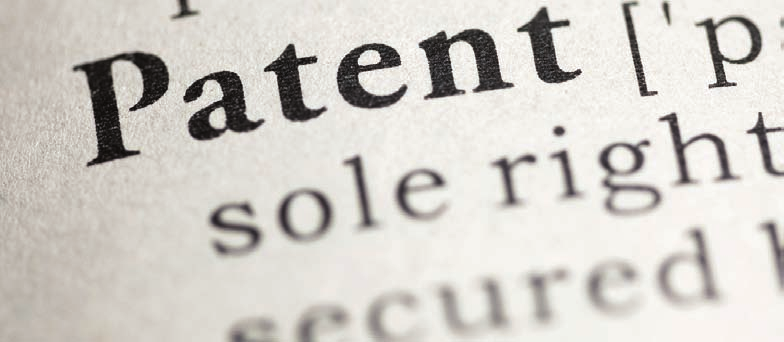
The Law of Generic Disparagement: Is It Possible for A Single Manufacturer to Claim Disparagement Through An Action of Generic Disparagement?
In the words of J. Usha Mehra in the case of Pepsi Co. Inc. v. Hindustan Coca Cola - “Effective advertising delivers a message that is remembered. It can change the way the world views a product or service.”
Earlier this year, Amul was sued by Hindustan Unilever Limited (HUL) for disparagement. The dispute concerned two advertisements comparing Amul’s “icecreams” to other ‘frozen desserts’ – claiming that the former uses ‘real milk’ while the latter does not. Last month, a single judge bench of the Bombay High Court passed a comprehensive judgment on the matter (Suit (L) No. 204 of 2017). The order confirmed that the advertisements had caused generic disparagement of goods in the product category, ‘frozen desserts’ and in extension had caused disparagement of HUL’s products of the same category (popularly known as Kwality Wall’s). J. Kathawalla restrained Amul from airing the impugned advertisements and also from otherwise disparaging or denigrating HUL’s products or business.
ANALYSIS OF THE ADVERTISEMENT
The storyline of TVC1 follows a young girl (Shriya) demonstrating courage in the dentists’ office, which qualifies her for ice cream as a reward. This then leads to a visual showing two cups – one labelled ‘Amul’ and the other labelled ‘Frozen Desserts’ – is made of edible vegetable oil. While the former cup has milk flowing into it, the latter has a thick, semi-solid liquid flowing in. With this visual in place, the voice-over then clarifies that Amul “icecream” is made out of “real milk” as opposed to “frozen desserts” which are made out of vanaspati (the semi-solid substance). It also instructs that children like Shriya should be given pure, “real milk” made “icecreams” instead of “frozen desserts” made out of “vanaspati/vanaspati tel".
It then asks consumers to check the packaging for the word “ice cream” before making a purchase. The disclaimer in the TVC1 is entirely illegible and notes the following: “FSSAI – the apex body of food safety and regulatory norms in India defines Ice-cream as milk based product that has not less than 10% milk fat and Frozen Dessert as Vegetable Oil based product that has not less than 10% Vegetable oils. It also prohibits any misguiding practices of presenting frozen desserts as ice-creams. Vanaspati mentioned in the voice over refers to Vegetable Oil.”
The second advertisement (TVC2) is the same as TVC1 except that in this, the voice-over and disclaimer both substitute the words ‘vanaspati tel’ for ‘vanaspati’.
HUL, being the market leader of products in the frozen desserts category at 51.3%, took issue with this depiction that frozen desserts contain ‘vanaspati/vanaspati tel’ – which is admittedly bad for health. It joined other companies in the frozen desserts market as proper parties to the suit. HUL claimed that the advertisements (TVCs) disparaged all the products sold under the category “frozen desserts” and by extension disparaged HUL’s products.
The Court, as mentioned earlier, confirmed disparagement in this case. It held that “the content, intent, manner and storyline of the impugned TVCs seen as a whole, convey a false, untruthful, malicious and negative message” thereby disparaging “the entire category of products known as Frozen Desserts of which the Plaintiff is a market leader” and “also disparaging the products manufactured and sold by the Plaintiff and adversely affecting the business of the Plaintiff.”
A well-settled principle of law is that while puffery of one’s goods through advertisement is permissible, this puffery should never extend to slander of a rival’s goods. Further, to determine disparagement, the crucial factors to be examined were: (1) intent of the commercial (2) manner of the commercial (3) story line of the commercial, and (4) the message sought to be conveyed by the commercial.
The above determination thus justifies the entitlement of HUL to sue for generic disparagement and slander of products sold under the category of “frozen desserts”. The next issue in this case, would then be – has there been disparagement of ‘frozen desserts’ through the impugned TVCs? This leads us to the root of the controversy: that the TVCs positively claimed that Amul’s products were “ice creams” since they contained real milk as opposed to “frozen desserts” that contain only “vanaspati/vanaspati tel.”
The TVCs on the whole were certainly indicative of Amul’s advertising agenda to misuse public perception of vansapati and denigrate and disparage “frozen desserts”. It was the overall “intent, manner, and effect” of the TVCs and not merely the use of the words “vanaspati/vanaspati tel”, which was in issue. If Amul were so keen on using the Hindi words, the entire advertisement should have been in Hindi.
The effect of the advertisement was to influence the consumers against “frozen desserts” through the depiction that they contain only vegetable oil/vanaspati tel and are thus “impure” or inferior to “ice creams”. This justifies the court’s holding to the extent that even if Amul had intended to use the words “vanaspati/vanaspati tel” to mean vegetable oil, which might not be factually incorrect, the entire effect, intent, and manner of the TVCs would still have disparaged “frozen desserts”.
WAS IT COMPARATIVE ADVERTISING?
While it could be argued that this was a case of comparative advertisement, which permitted puffery of its products, however, comparative advertising cannot extend to belittle, malign and discredit the products of rival. The impugned TVCs, seen as a whole, convey to the public clearly by content, intent, manner and meaning that Vanaspati in large quantity goes into Frozen Desserts. This is shown by the Vanaspati falling into the cup in the visual in both the impugned TVCs seen together with the voice overs.
This is in consonance with the available case law on comparative advertising, which reveal that for a case to succeed on the count of slander of goods through comparative advertisement, it is important for there to have been (a) a false/misleading statement regarding the goods, (b) that deceived consumers and (c) was likely to influence consumer behavior. In the present case, Amul’s TVCs had (a) made a false statement regarding the constituents of “frozen desserts” which has the effect of (b) deceiving/ potentially deceiving ordinary consumers who are aware of the health issues associated with vanaspati. The TVCs (c) not only effectively instruct against the purchase of such frozen desserts, but also influence the same through the real operation of point (b). The underlying factor in all this is that it is unlikely that people will purchase products that include constituents that they perceive to be bad for health.
In conclusion, we would observe that the law of commercial disparagement has been correctly extended to cover cases of generic disparagement which may affect an entire industry. By restraining Amul from airing the impugned TVCs, the Bombay High Court has through its comprehensive and objective order, upheld the sanctity of public information. This, especially when seen in the context of advertisements that not only have a wide reach but also significantly influence public knowledge and consumer behavior.
Recent Posts

Condition Precedent and Condition Subsequent under the Indian Contract Act, 1872
Jan 2019

Conceptual Similarity of Trade Marks: The Indian Position
Nov 2018

Decoding the ‘Myth’ behind the 2-Part Claim Drafting Format in the context of the Koniklijke Philips’ Case
Oct 2018